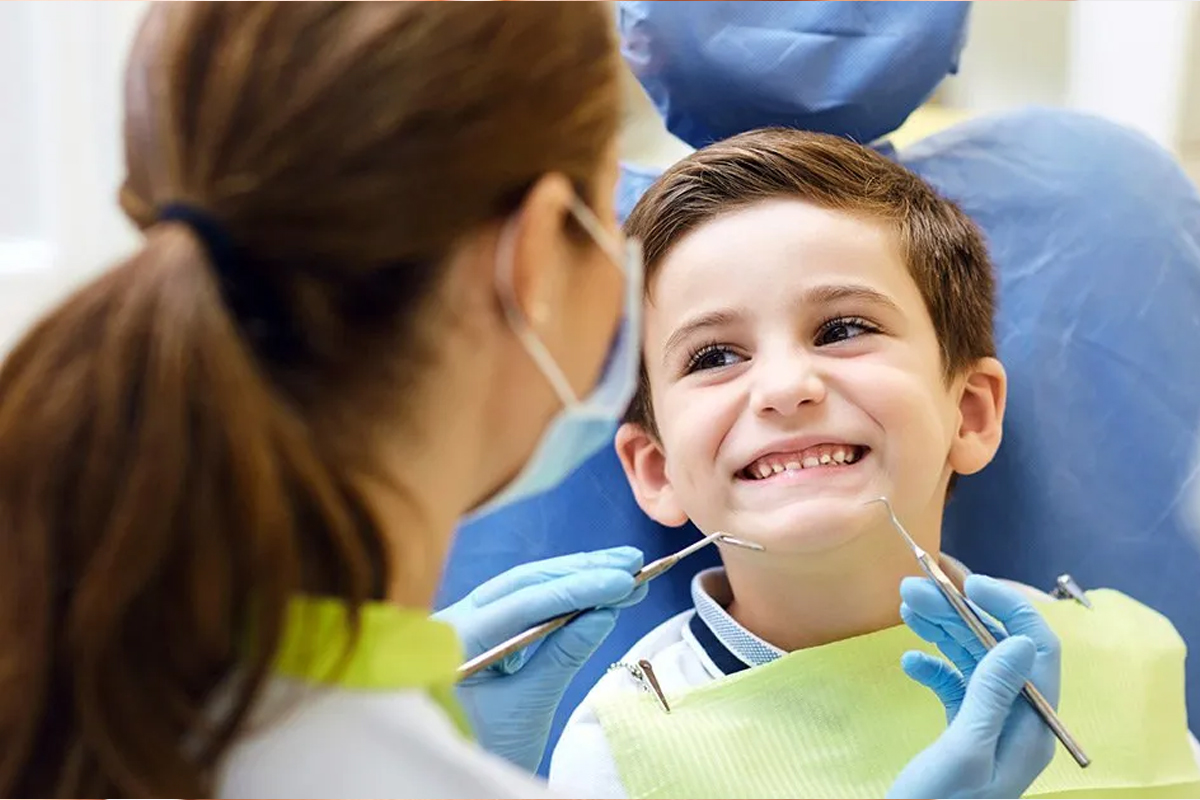Kids' dental treatment focuses on preventive care, early detection, and treatment of issues to ensure a healthy foundation for lifelong oral health. Pediatric dentists are specialized in managing the unique needs of children, including their growth stages, behaviors, and specific dental concerns.
Common Dental Treatments for Kids
-
Routine Checkups and Cleanings: Regular checkups every six months include professional cleaning, plaque removal, and fluoride treatment. These appointments help prevent cavities, promote good oral hygiene, and identify issues early on.
-
Fluoride Treatment: Fluoride strengthens tooth enamel and makes teeth more resistant to decay. It's often applied after cleanings to help protect against cavities, especially in children prone to tooth decay.
-
Dental Sealants: Sealants are a protective coating applied to the chewing surfaces of the back teeth (molars). They act as a barrier against food and bacteria, reducing the risk of cavities in these hard-to-reach areas.
-
Cavity Fillings: In cases where a cavity has developed, fillings restore the tooth and prevent further decay. Pediatric dentists typically use tooth-colored materials for a natural look and to make the experience as comfortable as possible.
-
Space Maintainers: When a child loses a baby tooth prematurely, space maintainers are used to hold the space open. This ensures that permanent teeth have room to come in properly and helps avoid alignment issues.
-
Orthodontic Assessment: Early orthodontic evaluations, often around age 7, help identify alignment issues or bite problems. If needed, early orthodontic intervention can guide proper jaw and tooth development, potentially avoiding more extensive treatments later.
-
Pulp Therapy: Also known as a "baby root canal," pulp therapy is performed to treat infected or damaged pulp tissue within a baby tooth. It helps preserve the tooth until it is naturally ready to fall out.
-
Tooth Extractions: If a tooth is damaged, severely decayed, or causing crowding, extraction may be necessary. Baby teeth extractions are also sometimes done when they don’t fall out naturally to make room for permanent teeth.
-
Behavior Management: Pediatric dentists are trained to handle children’s dental anxiety with techniques like gentle reassurance, "tell-show-do" explanations, and, in some cases, sedation options.
Benefits of Early Dental Treatment for Kids
- Prevents Tooth Decay: Regular care minimizes the risk of cavities and helps children learn healthy habits.
- Promotes Healthy Jaw and Teeth Development: Treatments like space maintainers and orthodontics support proper alignment and bite.
- Instills Good Oral Hygiene Habits: Regular visits encourage children to prioritize oral care and become comfortable in dental settings.
- Reduces Dental Anxiety: Early exposure to positive dental experiences helps children feel more at ease during dental appointments as they grow.
Tips for Parents to Support Kids’ Dental Health
- Encourage Brushing Twice a Day: Use a soft-bristled brush and a pea-sized amount of fluoride toothpaste.
- Floss Daily: Start flossing as soon as teeth touch.
- Limit Sugary Snacks and Drinks: Sugary foods contribute to tooth decay, so try to encourage balanced, low-sugar options.
- Routine Dental Visits: Regular visits to the dentist establish a healthy habit and ensure that teeth are developing properly.
Proactive dental care during childhood sets the foundation for strong, healthy teeth into adulthood.




